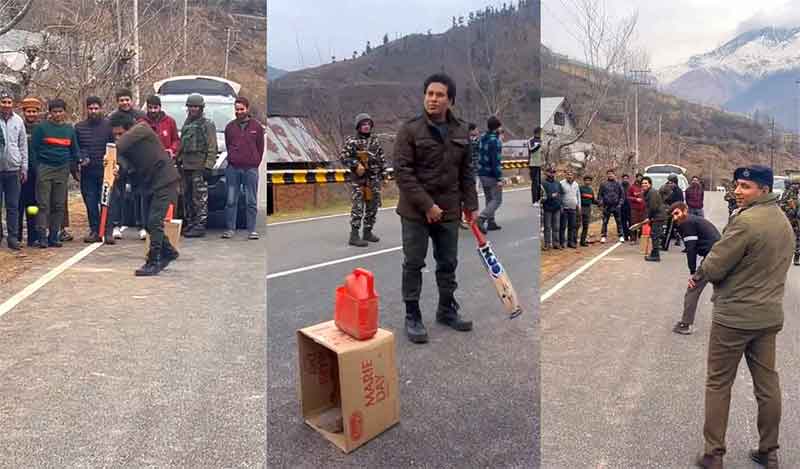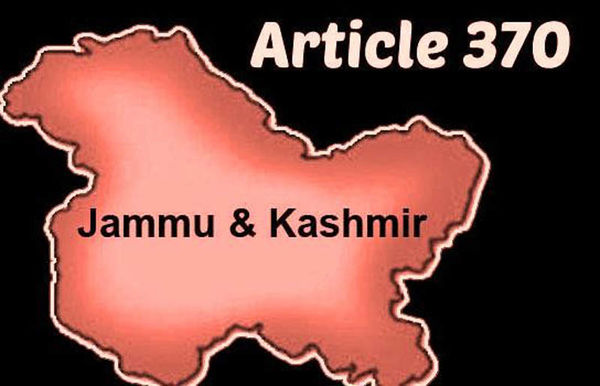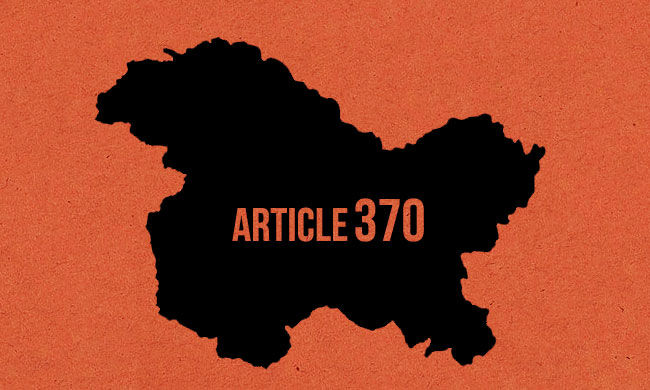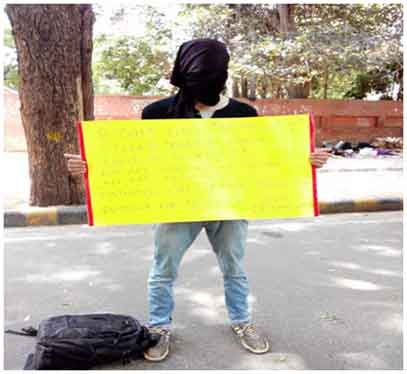
‘Those contractors who have been doing business all over the world in the name of “Kashmir shops”, do they realize what dilemma this nation is in at the moment? Isn’t it necessary to give them the message that a large segment of the public has long since awakened to your shops’? These were the expressions of a few Kashmiris in one of the twitter spaces who were being accused of running ‘Hindutva’ shop in another space, “aren’t these few people working as ‘contractors’ of BJP?
Having listened to such dozens of spaces raise a serious concern about the complexity of the Kashmir issue that has got another dimension of parachute social media narrators. The stakeholders of the historical dispute, India, and Pakistan, get easily off the hook and their intent of keeping this pot boiling. Whereas, those few Kashmiris who are on each other’s throats become suspicious and presumed as having a disregard for the majority sentiment. They have been seen bent upon in hijacking the people’s narrative, thus creating more confusion among the tormented population.
Who doesn’t know what twelve million people in Jammu and Kashmir want? From parties to the international community to United Nations, everybody knows the political legacy of the dispute. The UN has mandated to get it resolved by the exercise of the ‘right to self-determination’ across the Line of Control.
But the demand of the majority has been undermined by the ‘social media brigade’ by imposing their ideologies so that the conflict gets more complicated.
The twelve million people of Jammu and Kashmir are currently fighting for their survival and face annihilation. A policy has been adopted to paralyze them mentally and psychologically so that they can’t even choose a path. And, they are told that they might not be able to get a chance to do so.
Pro-freedom or mainstream leadership, both have been made to disappear from the political scene. The ruling party in India has kept pro-freedom leaders either in jails or they have been dying undignified deaths. Few among them have been got entangled in many cases. There kith and kin are busy in court hearings inside and outside Kashmir.
However, in recent days, mainstream leaders are seen holding party meetings or small rallies. Many top leaders who have nurtured India’s policies and demonstrated belief in the Indian Constitution for the last seven decades are facing charges of corruption and sedition.
If one political party has a record of killing one hundred twenty youths and children during its rule, the other party broke the record of snatching the sight of more than ten thousand people by pelleting and killing one hundred protestors.
The National Party, Congress while ruling the erstwhile state in alliance with the local party, took the initiative of demographic changes in 2008 when it decided to give 800 kanals of state land to the Amarnath Shrine Board. The same land policy is being irrigated by the BJP.
Ironically, the Indian government never trusted the mainstream either.
Former chief ministers or most of the politicians associated with the mainstream were kept behind bars for many months after the scrapping of art 370 on 5th Aug 2019.
Despite humiliation and indignation, these local parties are currently awaiting elections so that they will again have their pound of flesh.
A senior Kashmiri journalist says, “Jammu and Kashmir has returned to early ’30s when during the Dogra dynasty, non-Kashmiri Muslims were allowed to make decisions on administrative matters, security patrols or day to day affairs.”
‘The imperialist power at that time had set up a Glancy Commission and ordered an inquiry into the allegations of deprivations of the rights of Muslim Kashmiris. But who will demand this from the present Government? Anybody daring faces threat of arrest and prison under UAPA that has placed more than three thousand Kashmiris in Indian prisons’ he says.
According to the human rights activist, Mir Inayat, “India carried out its plan of annexing Jammu and Kashmir in 1947 but treated people as slaves instead of citizens. The only difference between today and that of the Dogra rule is that Maharajas were open in using forced slavery, while the current government, under the guise of democracy, is tightening the noose of slaves. This enslavement policy of BJP is not different from the Congress party.
Jammu and Kashmir is the national issue of every party in India, big or small, about which they are united and consensual. So, nobody cares about local people or their apathy”.
Kashmiri Muslims are divided and driven by different narratives. Some groups are engaged in undermining each other if they do not fall in line with their thought process.
Kashmiri Hindus, Sikhs, or other non-Muslim communities are organized and united under the Indian flag.
The divided voices and new ideologies have made Jk more vulnerable. There seems to be no room for consensus on a single point agenda which could be to leave it to the people instead of the imposition of own narratives. The groups need to focus the demand for the right to self-determination and engage with the international community.
At one of the Kashmir conferences of the European Parliament a few years ago, some parliamentarians, given the different narratives of the Kashmiri delegates, had suggested that “go home and discuss a possible solution among your groups”. That was rather an embarrassing situation for representatives but did nothing to unite.
Kashmir has another serious disadvantage that everyone considers him a leader.
After the beginning of the armed resistance in the early nineties, some parties had no one but one person. The tragedy of some of the parties in the Hurriyat Conference is that they have only a name and no one knows their work.
The parties have no consensus leadership. The ritual is to keep the party chief’s crown within the household. At the moment, the crown is there but the search continues across the border to find the head.
It is not wrong to have diverse political ideologies. This has often been the case in political conflicts. The tragedy is that every single person behave like a leader, consider as wise as Aristotle, and exercise the right to impose own narrative on others.
The mainstream political parties, accepting the accession to India as final, still keep insisting on dialogue with Pakistan. Does nobody dare to ask them what point they suggest to talk to Pakistan? These parties have ruled from generation to generation by deceiving their small portion of the population. Even by allying with the BJP or the Congress, they will keep selling ‘Pakistan’ to people in the elections. Poor voters fall into this trap again and again.
Another camp in the population is pro-Pakistan. The slogan they raise is based on religious bonding with Pakistan.
The first crusaders of the armed movement came with the slogan of complete independence from India and Pakistan but Robert Howden, a political commentator, affiliated with a think tank in UK says that ‘the pro-Pakistan Kashmiri who joined the armed movement have strengthened it, but shrouding it in religious colours, they have caused a lot of damage to the movement. It was easy for India to call it an “Islamic movement” in the international arena that did not hesitate to call Pakistan an epicentre of “terrorism”.
India knows that there is a soft spot in the heart of every Kashmiri for Pakistan whether he is in favour of accession with Pakistan or not. There are many such examples when pro-India political activists indulge in fire cracking when Pakistan wins a cricket match or express frustration for any anti-Pakistan action by the Indian government but this doesn’t mean that they are all in favour of accession with Pakistan.
A few decades ago, an Indian magazine, Outlook, wrote after a survey in Jammu and Kashmir that a large section of the population wanted complete independence, a separate homeland from both India and Pakistan.
Despite the killings, hardships, and constant violence, the sentiment of independence has become stronger in Kashmir. More people are joining the freedom camp clandestinely leaving family, jobs, and comfortable life.
At the same time, more political outfits have emerged on the Kashmir landscape or created for a particular purpose. It is widely believed that the outfits have the blessings of the authorities and have been given a ‘joint contract’ to target pro-India, pro-Pakistan, or pro-independence narratives. They do not take pro-independent factions seriously because they believe that it is not so difficult to change the mindset of some of the people through social media.
A leading activist belonging to one of these new outfits says that “some of the ‘Azad Kashmiris’ involved in the independence movement also promote Indian narrative who are sitting abroad and earning money in exchange for the slogan of complete independence.”
Some non-governmental organizations have also been set up in Kashmir which has got licenses to work in different sectors. They have been given the task of changing the ‘Azadi’ sentiment of youth.
You will find people from all walks of life in countless social media spaces who, after an afternoon tea, start teaching those twelve million Kashmiris who are living a caged life, who get killed every day as “terrorists”, who have to beg for corpses of their sons, whose businesses have been ruined, whose children have not seen schools for two and a half years and who get news of the killings of three to five youths every day through social media.
Who is the leader of this nation? And where is he? Millions of helpless Kashmiris are still looking for him who can lead them towards dignified life and peaceful resolution.
Those who are dreaming to lead the Nation with remote control in hand, wish they had an idea of the horrible situation on the ground, or would at least visit Kashmir for a few days.
Other anti-Kashmiri forces are also active on social media working throughout to further divide and create confusion among the masses, unfortunately, a few innocent people are often caught in their trap.
Kashmiris have to keep in mind that to carry forward this long struggle for the achievement of their political rights, they must not only be wary of such elements but work also for the unity of all parties irrespective of their ideologies. Or the struggle and the sacrifices will go down the waste.
Besides Pakistan and India, China has also become a party. It has become a more dangerous zone and might get out of hand if other elements in the neighbourhood move towards Kashmir.
There might be many groups who may not like my expressions. I don’t worry about it.
Just consider my words before you hang me.
Nayeema Mahjoor is an ex-editor of BBC and penguin author of lost in terror















































